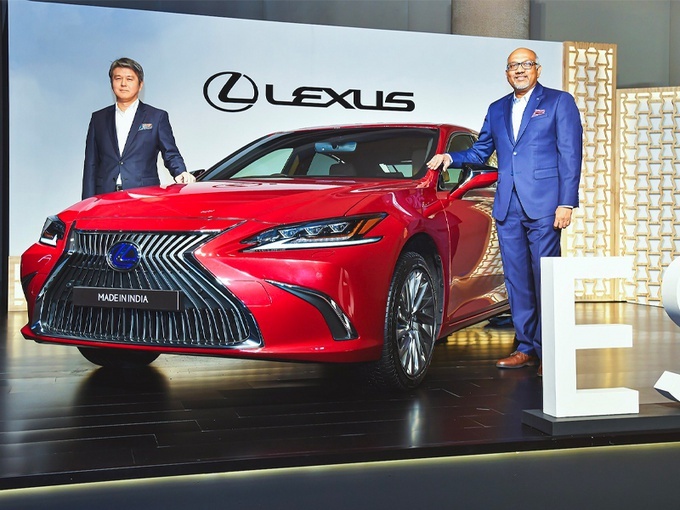Recently, the Lexus ES300h was officially launched in India with an asking price of 5.19 million rupees, equivalent to RMB 503,000, which is more expensive than the imported version in China.
Interestingly, this ES model is not imported from Lexus Japan or US factories, but is authentically made in China and made in India.
Lexus invested 100 million US dollars in India to build an assembly line to assemble and produce ES300h. India became the third largest Lexus production base outside Japan and the United States. There is no specific plan for domestic production in China.

Among the large-scale car brands sold in the Chinese market, Lexus is one of the few brands that adhere to the “domestic production” model. Its models sold in China are 100% dependent on imports regardless of their positioning.
Although Lexus does not have the bargaining power of first-tier luxury such as BBA, its price in China has always been difficult to say “friendly,” and it is still an unbelievable luxury brand for many ordinary consumers.
Made in China means that it can effectively reduce costs and lower the threshold for Chinese consumers to own the brand model. This is the voice of many people.
The high-level Japanese are not unable to hear the voices of the Chinese people. The official has disclosed the reasons for refusing domesticization more than once. One of the most important is that “the quality of Lexus cannot be guaranteed after domestic production.”
Even if the Chinese government has released the joint venture share ratio at this time, Lexus can build a wholly-owned plant in China. Proud Toyota still does not trust the level of “Made in China” and does not want to smash its century-old signboard on Chinese workers and Chinese suppliers.

In fact, China’s manufacturing power has long been known, and many domestic cars are better than their imported versions. Under the background of high localization, Lexus’s “100% import” has become its unique selling point. Putting aside the fact that domestic production likes “simple matching”, does import necessarily mean good, this matter has to be carefully Think about it.
If the quality of Made in China does not meet the Japanese requirements, then the “notorious” Indian production is even less on the table. After Modi promoted “Made in India”, although India’s manufacturing industry has a rising trend, it is still too early to compare with today’s China.
In the matter of “domestic production”, Lexus obviously has a double standard. Lexus’s fancy for India is definitely not the so-called “ingenuity”.
India has always been a country with strong local protectionism. The important method is tariffs, so the best way to control the cost of selling products from other countries in India is to set up factories there. “Changing the market for technology” and copying China’s success is the core idea of Modi’s “Made in India”.

The fact that Lexus is rooted in India is nothing more than policy. If you refuse to give in, you can only lose this market. The so-called quality control is an excuse. There are also mobile phone manufacturers such as Xiaomi, OPPO, VIVO, and Samsung.
China’s auto market is now free enough. Vanity is the reason. Lexus is better able to harvest sales under the “import” banner. When it comes to selling, you can also occasionally play the “price increase” routine. Lexus does not have to worry too much.
The issue of Indian production tells us that Lexus’ refusal to produce domestically has nothing to do with quality control made in China.